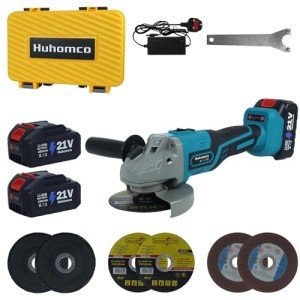Choosing power tool superstore For Sale
It doesn't matter if are a seasoned pro or just a novice, choosing the right power tool is crucial. Look for a good warranty policy and battery compatibility.
Mike Karch, president of Nue's Hardware and Tools in Menomonee Falls, Wisconsin, specializes in Dewalt and other professional-grade power tools. He has noticed that focusing his attention on one particular brand helps him to attract contractors.
Brand
The brand is a significant factor in the price of power tools, as well as the features you'll get. Power tools specifically designed for professionals could cost three times more than DIY models. They also come with a warranty of one year. Certain brands are focused on a specific segment of the market (metalworkers like Milwaukee, carpenters love DeWalt) however others, such Black & Decker and Ryobi offer a range of tools that are suitable for home use. Other manufacturers of power tools, such Metabo are specialized in commercial or industrial applications. The interface of battery powered power tools is sometimes not compatible across different manufacturers (even within the same product line), leading to vendor lock-in. However, there are adapters available to allow you to use a variety of brands batteries in their tools.
Power
Power tools are mechanized hand-held devices powered by an internal combustion engine or an electric motor. They can be used to cut down on the amount of manual work required and automate manual operations. They are employed for renovation, construction, housework, gardening, carpentry and engineering projects like building, wiring, metal fabrication and electrical engineering. They can also be utilized to enhance the quality of finished products and boost productivity.
There are many types of power tools that are available, each with its specific features and specifications. When deciding on the right power tool, think about the type of project you intend to use it for. A power tool that is cordless, for instance, is great for working in tight spaces without worrying about tripping over extension cords. It is also important to take into consideration the size of the tool, since some are larger than others. Choose a power tool which is easy to operate and comfortable in the hand.
It is crucial to remember that you will need to have the right safety equipment when using the power tool. This includes a mask, eye protection and hearing protection along with gloves for working. Additionally, certain power tools require dust collection systems. They can have ports built-in that connect to a vacuum hose, or be compatible with an external dust collection system.
When you are choosing a battery powered power tool, you should choose a brand that is compatible with other batteries produced by the same manufacturer. It is common for different battery powered power tools to have different interfaces, which can create problems when using them in conjunction. Some adapters from the aftermarket permit users to use batteries from different brands of power tools but they can also interfere with the safety and monitoring systems of the batteries.
Size
Power tools are available in a range of models, from lightweight tools that are designed for DIY, to high-end tools capable of handling the rigours on an industrial site. Professional and amateur users need to be able move and operate the equipment without causing injury or strain. The dimensions of a tool may also affect its ability to be stored and transported. Certain power tools come with extended warranties or service contracts, which appeal to some buyers.
Among top-selling brands in the Total Power Tools category, DeWalt had the highest share of units at 17% and saw an increase in shares year-over-year. Ryobi and Craftsman both exhibited strong rates of consideration, even though their share of the market dropped dramatically.
Big-box stores, such as Home Depot and Lowe's, account for the majority of sales in the Power Tools category. Online purchases grew at a faster rate than in-store purchases, which offset the slight increase in purchases made on the internet. Online average price is lower than in-store but still close to industry average.
Warranty
A solid warranty on power tools can give you peace of mind. Many manufacturers offer a warranty of some kind, but only a few are truly committed to their customers. Ridgid for instance is able to go above and beyond the industry standard with a Lifetime Service Agreement. This means that the owner of any Ridgid tool will not be charged for a repair or replacement, no matter the time it occurs. That's a big deal for smaller contractors who rely on their tools to remain productive.
The warranty period of a power-tool is also vital. The warranty period for higher-quality tools is typically longer, while the warranty period for less expensive ones may be shorter. Even the mid-range models will last a long time if they are maintained with proper maintenance and regular use.
When choosing the right power tool, select one with a warranty that is suitable for the type of work you're doing. If you're a homeowner for example, you might require a shorter warranty than those who are contractors. The warranty should be clear and easy to understand and include a contact number or an online system that gives quick answers when you encounter an issue.

Milwaukee For instance, Milwaukee provides a five-year limited warranty that covers defects in workmanship and materials. However, it doesn't cover normal wear and tear as well as alterations, misuse or neglect, as well as the lack of maintenance. Its warranty also doesn't apply to battery packs, chargers or bits and blades. The company's helpful team is ready to help customers decide the extent of their warranty based on their intended use. They can also guide customers through the process of getting repairs or replacement. Typically, receipts aren't needed for warranty claims.
